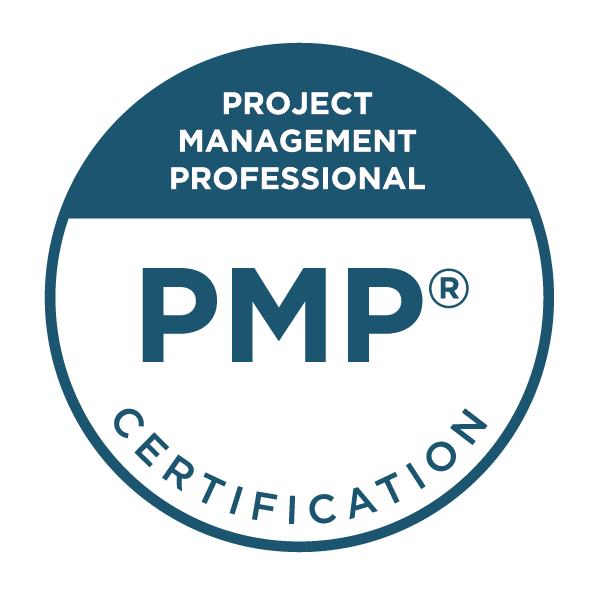
Are you wondering if obtaining PMP certification without any prior experience is possible? You’re not alone. The Project Management Professional (PMP) certification, based on the Project Management Body of Knowledge (PMBOK), is highly regarded in project management, showcasing an individual’s expertise and commitment to the profession.
However, there is a common misconception that experience is an absolute requirement for obtaining this certification. The Certified Associate in Project Management (CAPM) credential is another option for those with less experience.
Contrary to popular belief, pursuing PMP certification without prior experience is possible. While hands-on project management experience can be advantageous, the Project Management Institute (PMI), which administers the PMP exam, recognizes that individuals may have gained valuable skills through other avenues.

This means that even if you haven’t worked directly in a project management role before, you still have the opportunity to demonstrate your knowledge and competence through alternative means. Additionally, it can be helpful to take practice exams to prepare for the PMP certification process.
If starting in project management, you may also consider obtaining the CAPM certification as a stepping stone toward the PMP certification.
In this blog post, we’ll explore how project managers can leverage their relevant experience and qualifications to meet the requirements set by PMI. Let’s dive in and discover how you can embark on your journey toward achieving PMP certification, regardless of your previous professional background or lack thereof.
- Eligibility Criteria for PMP Certification Application
- Understanding Project Management Experience
- Types of Work that Qualify for PMP Certification
- How different industries can provide relevant work experiences
- Educational qualifications as a substitute for lacking work experience in obtaining a PMP certification.
- Conclusion
- FAQs
- Can I apply for PMP certification if I don’t have any formal education in project management?
- Is there an age limit or restriction for obtaining PMP certification?
- Can I include volunteer work in my application for PMP certification?
- How long does it take to prepare for the PMP exam?
- What are the benefits of earning PMP certification without experience?
Eligibility Criteria for PMP Certification Application
Project managers must meet specific requirements to obtain the highly sought-after PMP credential. Here’s what you need to know about the PMBOK exam.
- Educational Background: A high school diploma or equivalent is the minimum educational requirement for PMP certification, a credential recognized by project managers with relevant experience per the PMBOK.
- Professional Experience: You must have accumulated several hours leading and directing projects over several years to meet the PMP requirements. The specific experience criteria depend on your educational background and align with the PMBOK standards.
- To become a PMP, you must meet the PMP requirements outlined in the PMBOK. For the PMP exam, having a four-year degree is a prerequisite. Additionally, you will need at least three years (36 months) of project management experience and at least 4,500 hours spent leading and directing projects. To prepare for the exam, consider enrolling in a PMP course.

- For those without a four-year degree, the requirement for the PMP exam increases to 5 years (60 months) of project management experience, with at least 7,500 hours spent in leadership roles. Consider taking a PMBOK course or training to help meet these requirements.
- To become a PMP, you must meet the PMP requirements outlined in the PMBOK. For the PMP exam, having a four-year degree is a prerequisite. Additionally, you will need at least three years (36 months) of project management experience and at least 4,500 hours spent leading and directing projects. To prepare for the exam, consider enrolling in a PMP course.
Importance of Meeting Eligibility Requirements:
Meeting the eligibility requirements is crucial to proceed with your PMP certification application. This includes completing the necessary training course, passing the exam, and answering the required questions. Here’s why it matters.
- Credibility: By fulfilling the PMP exam and experience requirement and completing the course, you demonstrate that you possess the necessary knowledge and skills to excel as a project manager. Additionally, answering practice questions can further enhance your preparation for the PMP exam.

- Exam Preparation: The experience gained through taking a PMP training course and meeting the requirements will better prepare you for the challenging PMP exam. The course will provide the necessary training to answer the exam questions effectively. Additionally, the course will cover all the relevant topics within the recommended hours.

- Professional Growth: Becoming eligible for the PMP exam shows your commitment to professional development and enhances your career prospects in project management. A PMP exam course or training can help you meet the experience requirement.

Remember that obtaining the PMP certification without relevant experience may not meet the exam requirement; however, meeting these eligibility criteria ensures that you are well-prepared and qualified for this prestigious credential. This includes completing the required course and training.
So if you’re wondering whether getting PMP certification without experience is possible, now you know the answer – it’s essential to fulfill the necessary prerequisites before embarking on your journey toward becoming a certified Project Management Professional. A PMP training course will help you prepare for the exam by providing the knowledge and skills needed to pass. You will be tested on various project management questions during the exam to assess your understanding and proficiency.
Understanding Project Management Experience
Defining project management experience is crucial for the PMP exam. This certification, offered by the Project Management Institute (PMI), validates your proficiency in project management skills and signifies your ability to lead and manage projects effectively. Take a PMP exam course to get the necessary training and prepare for the exam questions.
To gain project management experience, it’s essential to differentiate between leading roles and participating roles in projects. A project management course can help answer any questions about the training and exam process. While a project manager is responsible for overseeing an entire project from start to finish, team members may have different levels of involvement. Participating in various project management tasks allows individuals to gather practical knowledge and understand the concepts involved.
One key aspect of gaining relevant experience is accumulating project management hours through training and courses. By actively working on projects and dedicating time to project management activities, you can enhance your understanding of the overall process and prepare for the exam with practice questions. This hands-on approach enables you to apply theoretical knowledge in real-world scenarios, further solidifying your skills as a project manager.
Types of Work that Qualify for PMP Certification
To obtain a PMP certification without prior experience, it’s crucial to understand the types of work that can qualify as project management experience. A project management course or training can help you gain the necessary knowledge and skills. While traditional project management roles may require specific titles or positions, the Project Management Institute (PMI) recognizes a broader range of activities and responsibilities.
Some examples include:
- Leading cross-functional teams requires effective collaboration with individuals from different departments or areas. This can be achieved through proper training and a course on team leadership. The goal is to work together towards project objectives.
- Budgeting and financial management: Overseeing project budgets, tracking expenses, and allocating financial resources appropriately. Additionally, this course provides training on managing budgets and tracking expenses effectively.
- Risk assessment and mitigation: Identifying potential risks, creating contingency plans, and implementing strategies to minimize their impact on projects. This course provides risk assessment and mitigation training, helping participants identify potential risks, develop contingency plans, and implement strategies to mitigate project impact.
- Communication and stakeholder management: Effectively communicating with team members, clients, vendors, and other stakeholders through a comprehensive course and training to ensure everyone is informed and engaged throughout the project lifecycle.
Examples of tasks and responsibilities that contribute to project management expertise
Within these broad categories, specific tasks contribute to developing project management expertise through a course or training. Some examples of these tasks include
- Creating project plans: Developing comprehensive plans outlining objectives, timelines, deliverables, and resource requirements for a course or training.
- Monitoring progress: Regularly tracking milestones and key performance indicators during the training course to ensure projects stay on track.
- Problem-solving: Addressing challenges that arise during projects by analyzing options, making decisions, and implementing solutions is an essential skill that can be developed through a course or training.
- Quality assurance training ensures projects meet quality standards through rigorous testing processes and adherence to best practices. The course emphasizes the importance of quality assurance in maintaining project quality.
How different industries can provide relevant work experiences
Project management skills are essential in any industry. The principles of effective project management remain consistent regardless of the sector. Thus, gaining relevant work experience in various industries can contribute to qualifying for PMP certification. Taking a project management course or training can also be beneficial.
For instance:
- Managing construction projects in the construction industry requires effective coordination of multiple contractors/vendors, which can be achieved through proper courses and training. It is crucial to adhere to strict timelines and budgets while ensuring smooth operations.
- Training in information technology involves overseeing software development projects, including planning, testing, and implementation phases.
- In the healthcare sector, leading initiatives involve training to implement new healthcare systems or manage improvement projects in hospitals or clinics.
By recognizing the diverse range of work experiences that can contribute to project management expertise, individuals seeking PMP certification without prior experience can leverage their existing skills and responsibilities to meet the eligibility criteria.
If you’re wondering whether it’s possible to get PMP certification without any prior experience, there are alternative paths you can explore. Here are some options to consider:
- Look for positions that offer on-the-job training or internships in project management.
- Seek out entry-level roles where you can gain practical experience working on projects.
- Consider transferring skills from other industries or roles that involve managing tasks and teams.
Educational qualifications as a substitute for lacking work experience in obtaining a PMP certification.
- Pursue a degree or certification program in project management to demonstrate your knowledge and commitment.
- Highlight relevant coursework or specialized training programs you have completed.
- Showcase any academic projects that involved managing timelines, resources, and stakeholders.
- Offer your services as a volunteer for organizations that need help with project coordination.
- Join non-profit initiatives where you can contribute to planning and executing projects.
- Document your involvement in these projects and emphasize the skills gained through hands-on experience.
Remember, while these alternatives may help fulfill the project management experience requirement, they do not replace the value of real-world work experience. However, leveraging these options can enhance your chances of obtaining PMP certification even without prior professional experience.
Conclusion
Obtaining PMP certification without prior project management experience is possible. The eligibility criteria for PMP certification application require a combination of education and professional experience in project management. However, the Project Management Institute (PMI) recognizes various types of work that qualify as project management experience, allowing individuals to demonstrate their skills even if they haven’t held a specific project manager role.
To obtain PMP certification without experience, you can leverage your work experience and identify projects within your organization that align with PMI’s requirements. By showcasing your involvement in these projects and demonstrating your knowledge of project management principles, you can strengthen your application for PMP certification.
Once you have obtained the PMP certification, it opens up numerous job opportunities in project management. Employers value the credibility and expertise that comes with this globally recognized certification. It can enhance your career prospects and potentially lead to higher earning potential.
To kickstart your journey towards obtaining PMP certification without experience, consider researching the eligibility criteria, understanding what qualifies as project management experience, and applying for the PMP certification program through PMI’s official website.
While obtaining PMP certification without prior experience is feasible, it requires dedication and commitment to learning and applying project management principles. By investing time and effort into gaining practical knowledge and skills in this field, you can position yourself as a competent professional capable of managing complex projects successfully.
FAQs
Can I apply for PMP certification if I don’t have any formal education in project management?
Yes! PMI considers formal education and professional work experience when evaluating eligibility for PMP certification. While formal education in project management can be beneficial, it is not mandatory to apply for the certification.
Is there an age limit or restriction for obtaining PMP certification?
No, there are no age limits or restrictions. You can apply for the certification regardless of age if you meet the eligibility criteria and demonstrate the required project management experience.
Can I include volunteer work in my application for PMP certification?
Yes, PMI recognizes volunteer work as a good project management experience. If you have volunteered on projects that align with PMI’s requirements, you can include them in your application to showcase your skills and involvement.
How long does it take to prepare for the PMP exam?
The preparation time varies depending on circumstances such as prior knowledge, availability, and study approach. On average, most candidates spend around 2-3 months preparing for the PMP exam. However, creating a study plan based on your specific needs is recommended and allocating sufficient time to cover all exam topics thoroughly.
What are the benefits of earning PMP certification without experience?
Earning PMP certification without prior experience can significantly boost your career prospects in project management. It demonstrates your commitment to professional development and validates your knowledge and skills in this field. The certification opens doors to new job opportunities, higher salaries, and increased recognition within the industry.

4 responses on "Can I Get PMP Certification Without Experience? Find Out Now!"